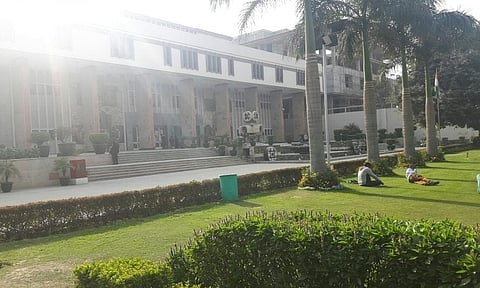
- News
- Columns
- Interviews
- Law Firms
- Apprentice Lawyer
- Legal Jobs
- हिंदी
- ಕನ್ನಡ

The Delhi High Court yesterday finally put to bed a defamation suit that lasted nearly twenty years. Quite significantly, Justice Rajiv Sahai Endlaw opined that a public apology is a more appropriate relief than monetary damages in defamation cases.